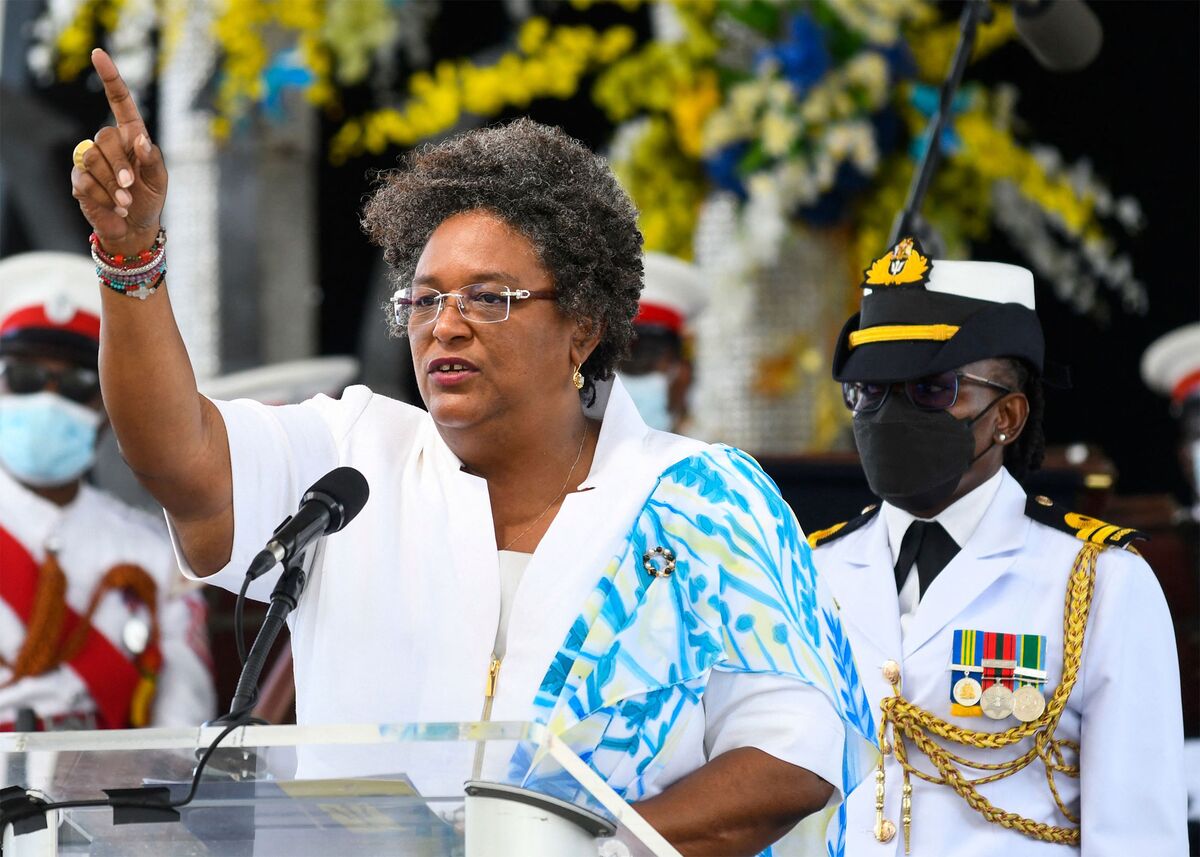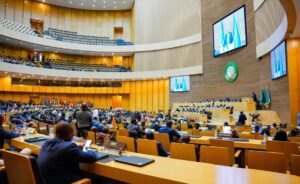Hurricane Beryl, the first hurricane of the 2024 Atlantic season, made a catastrophic impact on the Caribbean, marking an unprecedented start to the season. The storm, which reached Category 5 status with winds up to 160 mph, left a trail of destruction in its wake, severely affecting countries throughout the region. As the region grapples with the aftermath, the focus is shifting to rebuilding resilience and ensuring sustainable recovery.
Prime Minister Dickon Mitchell of Grenada emphasized the urgency of international support, stating, “The devastation caused by Hurricane Beryl is beyond what we could have imagined. We urgently need the support of the international community to rebuild and restore our communities. Our resilience is being tested, but with global solidarity, we can overcome this challenge.” He further highlighted the need for sustainable rebuilding efforts, saying, “This is an opportunity to rebuild stronger and greener. We must ensure that our recovery efforts are not only about restoring what was lost but also about preparing for the future.”
The Immediate Impact
Hurricane Beryl’s fierce winds and torrential rains resulted in widespread damage across the Caribbean. Entire communities were flooded with loss of life, homes destroyed, and infrastructure severely impacted. There was significant damage to buildings, telecommunications, and other essential services. Coastal infrastructure and the marine sector suffered heavy losses.
Hurricane Beryl also delayed the July 3-5 2024 CARICOM conference, scheduled to take place in Granada on the heels of a successful SIDS4 conference and the proposal to formulate the DBRP (Development Bank for Resilient Progress.) The 2024 CARICOM agenda focuses on sustainable development, regional security, and economic integration. Key priorities include advancing the “25 by 2025” food security initiative, promoting renewable energy adoption, and enhancing climate resilience. Additionally, CARICOM aims to strengthen intra-regional trade, improve healthcare systems, and bolster disaster preparedness and response mechanisms. Digital transformation and innovation are also high on the agenda, with efforts to enhance connectivity and technology access across member states. These initiatives are designed to foster a more resilient, self-sufficient, and prosperous Caribbean community, addressing both immediate challenges and long-term growth opportunities.
President of Guyana, Dr. Irfaan Ali, highlighted the disastrous impact of Hurricane Beryl on the Caribbean’s agriculture sector. He noted that in some islands, the storm completely wiped out agricultural production, setting back the region’s vision of reducing the food import bill by 25 percent by 2025. To address this, CARICOM’s Ministerial Task Force on Agriculture has been asked to convene a strategic meeting to analyze the impact and develop a comprehensive recovery plan.
Ali emphasized the need for a detailed assessment of the damage and the exploration of ideas on how to rebuild. This includes making technology available and planting quick-yielding varieties to help farmers regain some earnings. The task force will also discuss price stability and ensure the supply of critical commodities to the affected islands to avoid further household impacts.
“There are some thoughts and some initial ideas that I have already shared with some colleagues and also the Chair of the Ministerial Task Force on Agriculture to see how we can quickly mobilize the necessary stakeholders and resources to address this tremendous setback that our 25 by 2025 action plan is being hit with by Beryl,” said Ali.
Ali also intends to seek early intervention from the Food and Agriculture Organization (FAO) and the European Commission of Agriculture (ECA) to assist farmers and adapt food production methodologies to the new challenges posed by the hurricane. He stressed the importance of nutritional value in food supplies and the need for immediate food relief to ensure the nutritional needs of affected populations are met.
Initial assessments indicate that the agriculture sector has suffered tens of millions of dollars in losses. The affected islands include Barbados, St. Lucia, St. Vincent and the Grenadines, Jamaica, and Grenada. “As lead head on agriculture and food security, I am tremendously concerned at the setback Hurricane Beryl would have on the 25 by 2025 food security plan. The initial assessment is heart-wrenching to our farmers, the governments, and the people of these countries,” Ali said.
Change the World - Subscribe Now
Response from International Organizations
United Nations Development Programme (UNDP)
The UNDP has been at the forefront of the international response, providing immediate support to the affected regions. UNDP has deployed personnel to assist national and regional emergency management authorities, focusing on critical recovery needs. Their efforts include restoring infrastructure, supporting livelihoods, and ensuring that communities can rebuild better and more resiliently (UNDP).
UNICEF
UNICEF has raised alarms about the impact of Hurricane Beryl on children, estimating that at least 3 million children are at risk due to the storm. The organization has mobilized teams across the Caribbean to provide humanitarian assistance, focusing on ensuring the safety and well-being of children. This includes restoring safe spaces such as homes and schools and providing essential supplies to affected families (UNICEF) (UNICEF Canada).
United Nations
The UN has allocated $4 million from the Central Emergency Response Fund to support initial humanitarian operations in the hardest-hit areas. This funding aims to kickstart recovery efforts, with additional support planned as the full extent of the damage becomes clear. The UN is also working closely with national governments and regional bodies to coordinate relief efforts and ensure that resources are used effectively (The United Nations in the Caribbean).
Caribbean Disaster Emergency Management Agency (CDEMA)
CDEMA has played a crucial role in disaster response and coordination. The agency has been actively involved in assessing the damage, providing immediate relief, and coordinating with international partners to ensure a comprehensive response. CDEMA’s efforts are crucial in fostering regional collaboration and ensuring that the recovery process is inclusive and effective (CDEMA).
Path to Sustainable Recovery
Building Back Better
The concept of “building back better” is central to the recovery efforts. This approach emphasizes the importance of not just restoring what was lost but improving resilience against future disasters. This includes implementing stronger building codes, enhancing early warning systems, and investing in sustainable infrastructure.
Community Involvement
Engaging local communities in the recovery process is essential. Community-based approaches ensure that the needs and priorities of those affected are addressed. This includes involving local stakeholders in planning and decision-making, ensuring that recovery efforts are culturally appropriate and sustainable.
Climate Change Mitigation and Adaptation
Hurricane Beryl has underscored the urgent need for climate change mitigation and adaptation strategies. The Caribbean is highly vulnerable to the effects of climate change, and strengthening resilience against such events is critical. Investments in renewable energy, sustainable agriculture, and water management are essential components of this strategy.
Regional Collaboration
Collaboration among Caribbean nations is vital for effective disaster response and recovery. Organizations like CDEMA facilitate regional cooperation, allowing countries to share resources, expertise, and best practices. This collaborative approach helps build a more resilient Caribbean, capable of withstanding future climate-related challenges.
International Support and Solidarity
The support from international organizations and donor countries is crucial for the Caribbean’s recovery. The UN, UNICEF, and other international bodies play a significant role in providing financial aid, technical assistance, and policy guidance. This international solidarity ensures that the region has the necessary resources to recover and build resilience.
Conclusion
The path to recovery from Hurricane Beryl is fraught with challenges, but it also presents an opportunity to build a more resilient Caribbean. By embracing sustainable recovery practices, enhancing regional collaboration, and leveraging international support, the region can emerge stronger and better prepared for future disasters. The efforts of organizations like the CARICOM, UNDP, UNICEF, the newly forming DBRP and CDEMA are pivotal in driving this transformation and ensuring that the Caribbean not only recovers but thrives in the face of adversity.For more information on the ongoing efforts and how you can contribute, visit the UNDP, UNICEF, and UN websites.

 Follow SDG News on LinkedIn
Follow SDG News on LinkedIn











